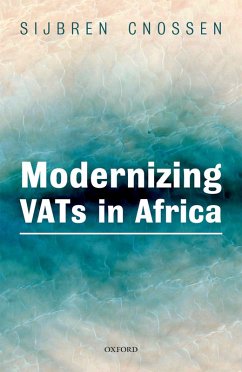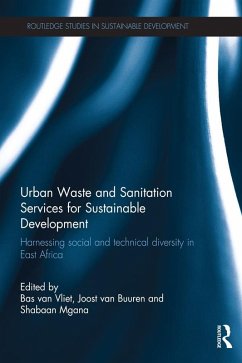
Modernizing VATs in Africa (eBook, ePUB)
Versandkostenfrei!
Sofort per Download lieferbar
70,95 €
inkl. MwSt.
Weitere Ausgaben:

PAYBACK Punkte
35 °P sammeln!
Most African countries are in dire need of more tax revenue. In 28 out of 45 countries with a value-added tax (VAT), total tax revenue as a percentage of GDP is around 15% or less, falling short of what is necessary to finance basic human and economic development. Far from being revenue-raising instruments, current African VATs are riddled with exemptions, exclusions, and zero rates on domestic goods and services that depress revenue, are highly distortionary, and greatly complicate the administration of VAT. Modernizing VATs in Africa enables policymakers, professionals, and students to analy...
Most African countries are in dire need of more tax revenue. In 28 out of 45 countries with a value-added tax (VAT), total tax revenue as a percentage of GDP is around 15% or less, falling short of what is necessary to finance basic human and economic development. Far from being revenue-raising instruments, current African VATs are riddled with exemptions, exclusions, and zero rates on domestic goods and services that depress revenue, are highly distortionary, and greatly complicate the administration of VAT. Modernizing VATs in Africa enables policymakers, professionals, and students to analyse African tax systems to ascertain how they can be modernized. It explains the case for VAT base-broadening over rate-increasing, arguing that exemptions and zero rates mainly accrue benefits for higher-income groups. Even more persuasively, it demonstrates that the net result of fiscal systems can be equalizing if the revenue of broad-based VATs is used to finance in-kind transfers, such as healthcare and education. VAT modernization should be used to enable governments to finance development; Modernizing VATs in Africa puts a compelling case forward for how and why this can be achieved.
Dieser Download kann aus rechtlichen Gründen nur mit Rechnungsadresse in A, B, BG, CY, CZ, D, DK, EW, E, FIN, F, GR, HR, H, IRL, I, LT, L, LR, M, NL, PL, P, R, S, SLO, SK ausgeliefert werden.













